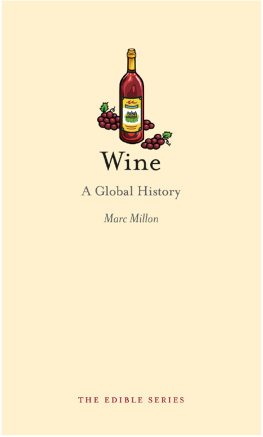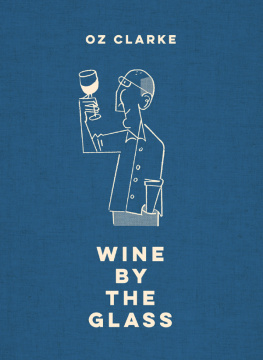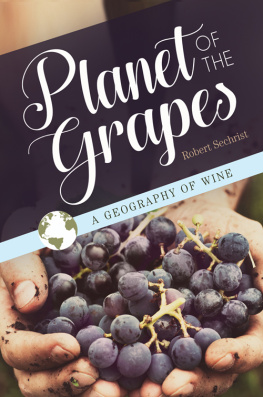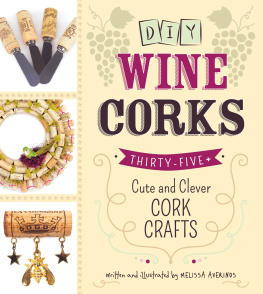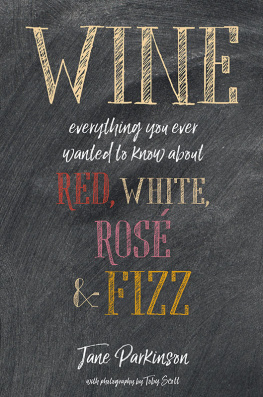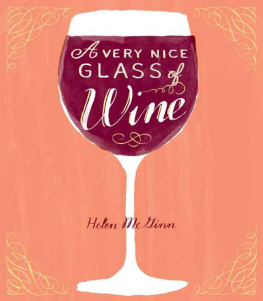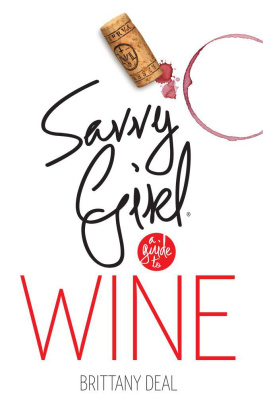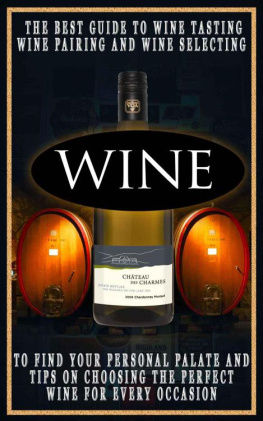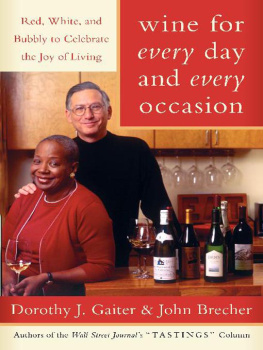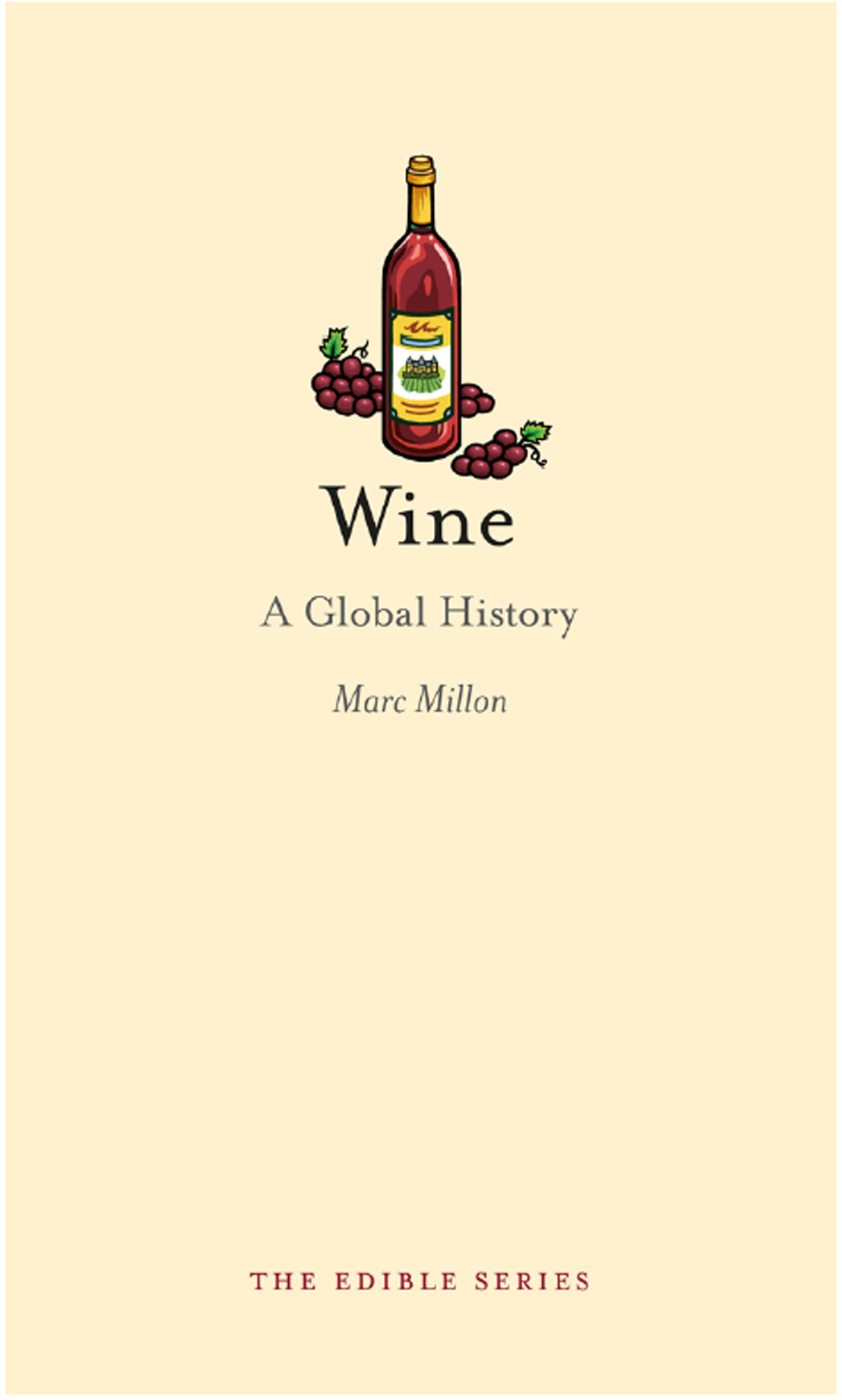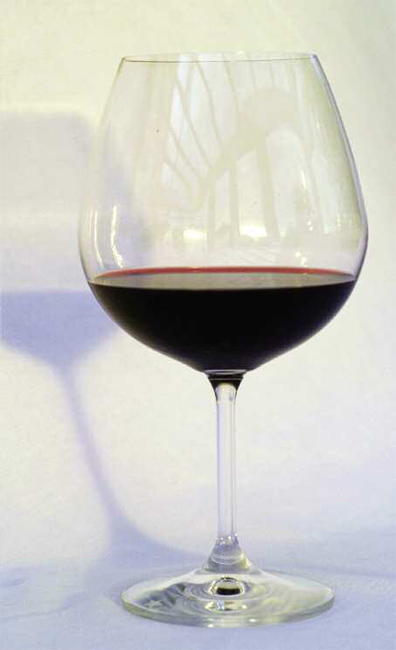Millon, Marc.
Wine: a global history. (Edible)
1. Wine and wine making History.
I. Title II. Series
641.2209-DC23
Introduction

Wine is the most wondrous, complex, mysterious and magical of all mans agricultural creations. At the same time, it is one of the simplest and most natural.
At its most basic, wine is simply the fermented juice of fresh grapes. Vitis vinifera wine grapes contain a high concentration of fructose. Once crushed, natural yeasts present on the skin of the grapes feed on this sugar, converting it to alcohol and giving off carbon dioxide as a by-product. The result is a fermented beverage that may or may not be potable. If left exposed to air, it will quickly spoil and turn to undrinkable vinegar. But nurture it carefully and it can be conserved for months, years, decades even centuries.
The origins of wine go back to the origins of modern humankind. As early man emerged from a nomadic hunter-gatherer way of life and began to embark on one of settled domestication, it would seem that the practice of gathering grapes for the making of a fermented beverage, wine, developed perhaps as early as 8,000 years ago. From its earliest origins, most probably in the Transcaucasus, the grape vine quickly spread across Asia Minor and the Mediterranean, and wine became something of a symbol of civilization itself.
Indeed, almost from the earliest days of its discovery and creation, wine was considered something special, almost divine. No doubt the considerable effort necessary to produce wine meant that it was perforce the most highly valued and precious of agricultural products. Consider what went into what still goes into the creation of wine: the careful nurturing and cultivation of the plant for a period of years before it is able to bear fruit; the annual cycle of work in the vineyard leading to a single, once-a-year harvest; the careful collection of the grapes and their transport to a winemaking facility; the pressing of the grapes and the alcoholic fermentation to transform juice into wine; and the storage of the finished wine itself in a way that ensures it does not spoil. Add to this the fact that wine has the ability to induce altered states of consciousness and it is not hard to see why from its earliest origins it was so highly prized, becoming imbued with connotations of the divine and miraculous.
Indeed, from those earliest days, wine was considered a drink for kings and nobles. Across civilizations, from the Sumerians to the Egyptians, wine was not only enjoyed at the most important moments in the here-and-now, but even accompanied personages of the highest birth on their journeys to the afterlife.
Wine, a drink for kings, pharoahs and warriors, was considered a veritable gift from the gods. Cults based around the consumption and enjoyment of wine sprang up in ancient Greece and Rome, while wine became a central element in both Hebrew and Christian ritual and liturgy. The daily requirement for wine to celebrate the miracle of the Eucharist the transubstantiation of wine into the blood of Christ meant that as Christianity spread to the New World and beyond, vineyards needed to be planted for the production of wine for the quotidian celebration of Mass.
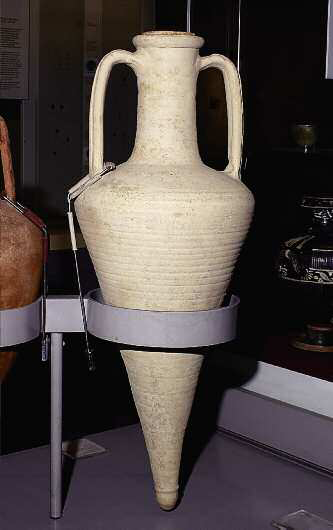
Amphora, probably made in Cyprus, 300100 BC. The amphora was the vessel of transport and storage for wine in the ancient world. Amphorae could be stacked in the holds of ships for transport across the Mediterranean and were easily handled due to their shape and size.
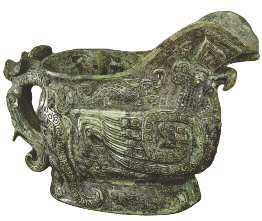
| Shang Dynasty spouted ritual wine vessel, 13th century BC. |
Today grape vines are planted all around the globe. Wine is now not only a beverage for marking significant moments in religious and secular life, but it is also an essential daily staple for many. Indeed, the regular consumption and enjoyment of wine with meals is part of the European lifestyle and culture that has immense global appeal. Wine consumption is on the increase in countries such as the United Kingdom and the United States, as well as in emerging wine-drinking countries across India, Southeast Asia and the Far East.
How did Vitis vinifera, a single species from the genus Vitis probably originating in the Transcaucasus, spread so successfully all around the world? Today the grape vine is found on every continent on earth with the exception of Antarctica. And why grapes? After all, virtually all fruits and many other parts of plants are fermentable, able to have their natural sugars converted into an alcoholic beverage: witness cider from apples; fruit wines; rice wine; various distillations made from grain, potatoes and other carbohydrates; and beer from malted barley. Yet wine produced from fresh grapes is unique. Not only is it able to produce a magnificent alcoholic libation, but it is also the only such beverage that has an entire culture and even a cult surrounding its production and consumption.

